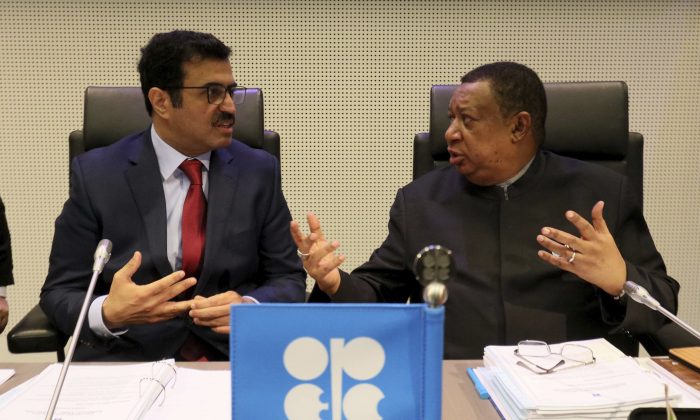There are no products in your shopping cart.
| 0 Items | £0.00 |


NIGERIA may get some economic respite before the end of the year after analysts at US bank Goldman Sachs raised their price forecasts for crude oil for the second and third quarters of 2021 to about $75 a barrel.
Being a mono-economy with the federal government realising over 90% of its revenue from crude oil, Nigeria is over-dependent on the global petroleum market and thus very vulnerable to its vagaries. With the market severely affected by the coronavirus pandemic, Nigeria's economy has been hit hard, with the 2020 and 2021 budgets having to be funded by external borrowing.
With things looking very bleak, Nigeria's looks set for a very rough couple of years at the very least but Goldman Sachs believes that respite is in sight as reduced crude oil supply will rally prices. According to Goldman Sachs the price of Brent Crude, a grade identical to Nigeria's Bonny Light Crude is likely to average $65 a barrel in the second quarter of the year and $75 a barrel in the third quarter.
Its previous forecasts, the bank's forecasts were $10 a barrel lower in each case, put at $55 in the second quarter and $65 in the third quarter. Over the last week, Brent Crude prices have risen to about $63 a barrel amid supply concerns and according to Goldman Sachs, the main catalysts for rising prices include low inventories, higher costs and speculative inflows.
A Goldman Sachs spokesman said: “We now believe that oil prices will rally sooner and higher than our previous $65 a barrel summer forecast because of fundamentals and higher marginal costs at least in the short run. Also affecting prices will be the ongoing reflationary asset rotation.”
According to the bank, beyond expectations, demand and supplies have rebalanced faster than was expected during the winter and the deficit is likely to broaden the northern hemisphere spring because the rise in Opec+ production delays the recovery in demand. It added that any rise in Iranian exports will most likely take months to materialise and this is accommodated within an aggressive increase in the amount of Opec+ output.
“This increases our conviction in a tight oil market this summer when we expect Organisation for Economic Co-operation and Development inventories to normalise,” the bank said. While all this is ongoing, the Organisation of Petroleum Exporting Countries (Opec) and its allies Russian and Kazakhstan have agreed to cut production to reduce crude oil stockpiles, which has helped rally prices.